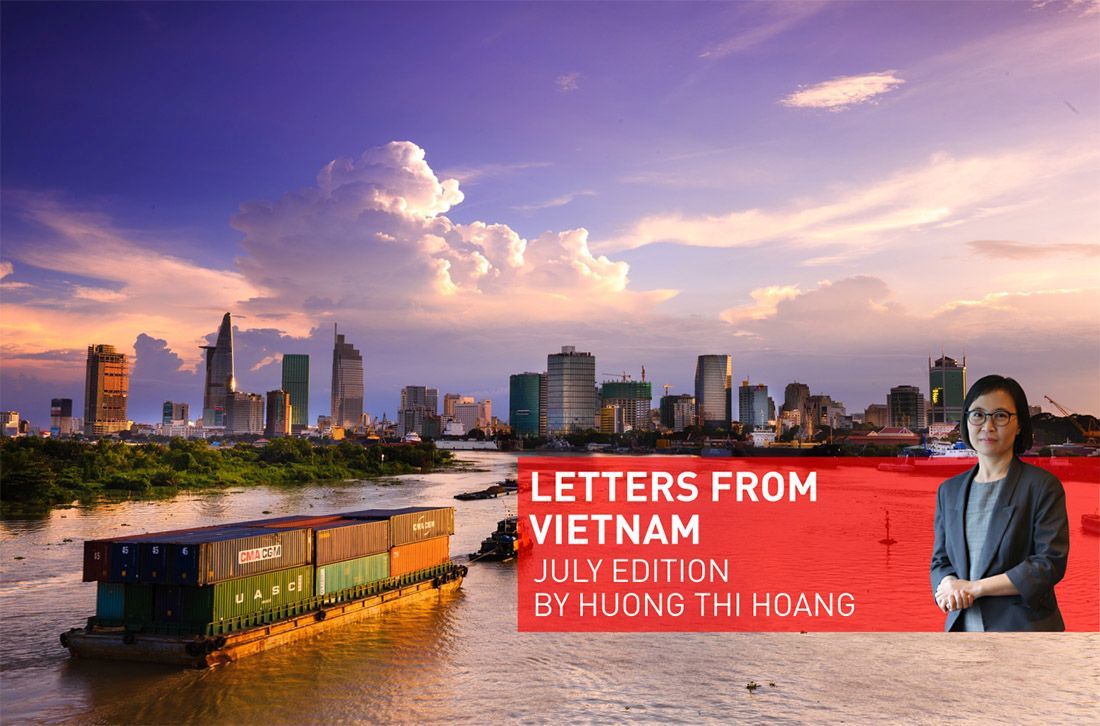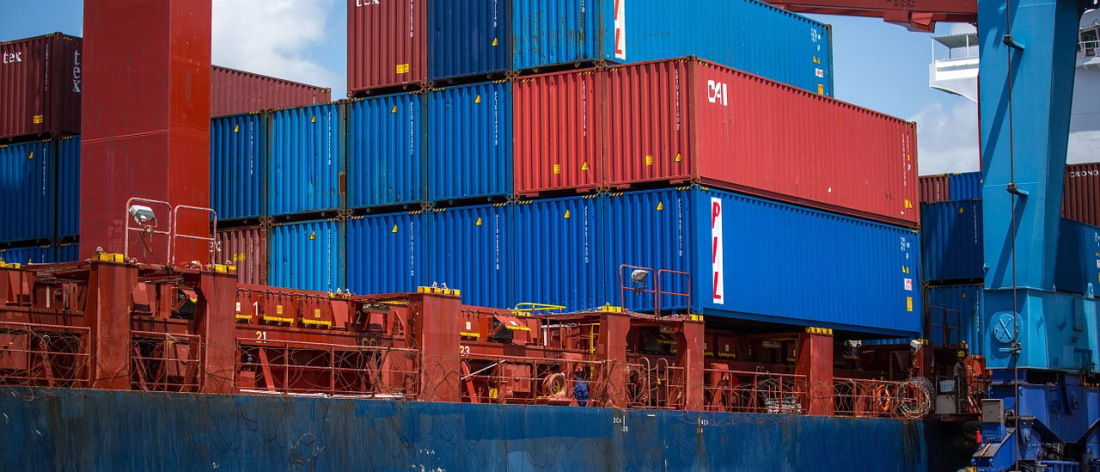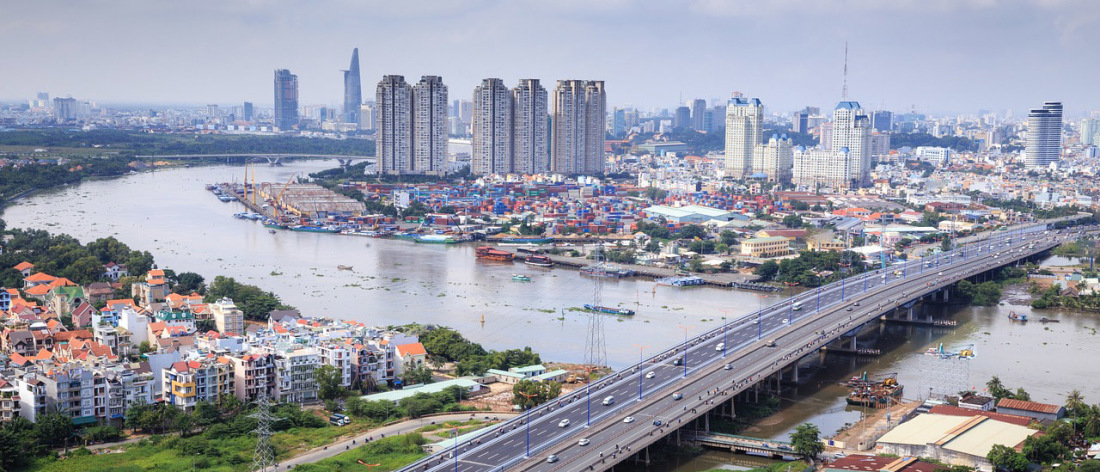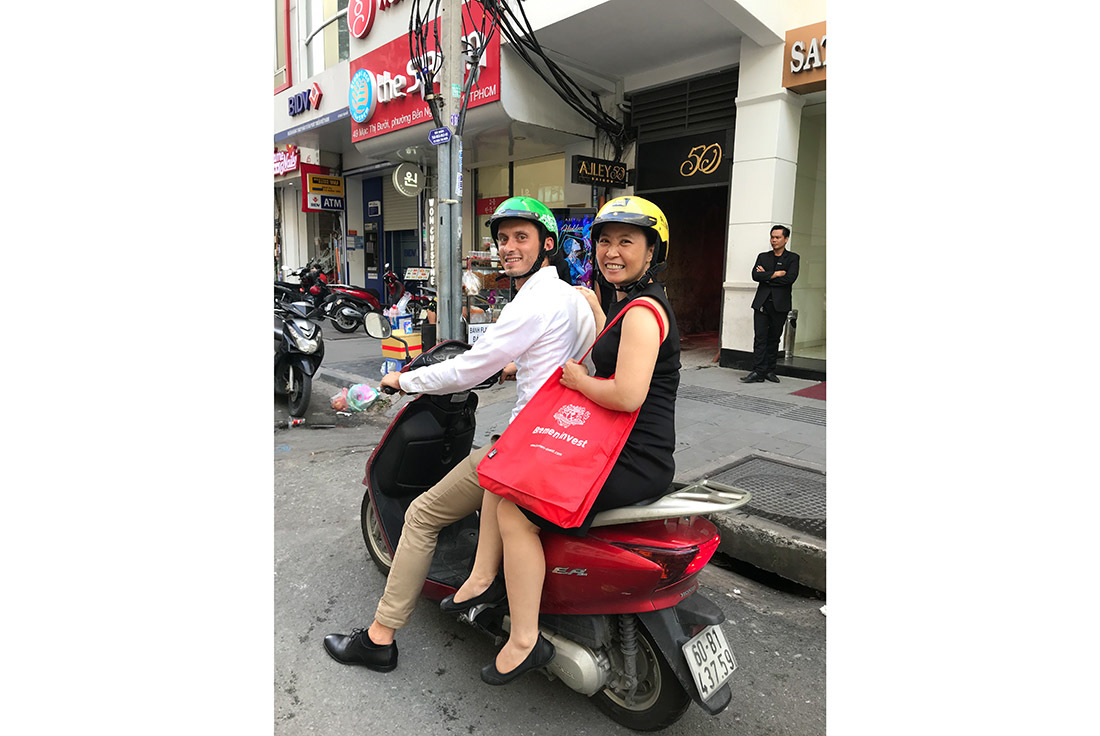Letters from Vietnam: July 2019 edition
Letters from ...Information on and insight into business and investment in Vietnam

Vietnam is one of the fastest growing economies in the world. For export-focused companies it offers a rapidly developing market and unimagined potential.
Every four months, Huong Thi Hoang, director of the local Bremeninvest office, reports from Ho Chi Minh City on trends, opportunities and new developments in her homeland. Click here if you would like to subscribe to this newsletter.
Our topics in July:
What does the new free trade agreement mean for German businesses?

At the end of June, representatives from the European Union and the Vietnamese government met in Hanoi to sign the EU-Vietnam Free Trade Agreement (EVFTA). As with previous free trade agreements, such as the JEFTA deal with Japan, it aims to improve mutual trade relations. Specifically, businesses can expect the following from the agreement:
- Customs duties: Once the trade deal is fully implemented, virtually all customs duties imposed on goods traded between the EU and Vietnam will no longer apply. Previously, Vietnam had imposed import tariffs of 35 per cent on machinery and 78 per cent on vehicles. Only a small proportion of import and export goods will now be subject to quotas and tariffs.
- Standardisation: Vietnam has committed to meeting international standards such as ISO, making standardisation documents publicly accessible and encouraging independent certification.
- Brand protection: Protected regional designations (e.g. Champagne, Gorgonzola) will have legal status.
- Public tenders: European companies will be better able to participate in tenders put out by the government, local authorities and state-owned enterprises.
- Secure business environment: Legal protection against illicit copying of inventions, works of art and brand-name products will be improved.
- Access for service providers: It will be easier for European companies to access markets for courier services, green technologies, maritime transport, and banking and insurance.
- Investment: Companies can now invest more easily in certain key sectors such as food and beverage, tyres and tubes, and ceramics and building materials.
- Mediation: A dispute settlement mechanism is being put in place that will offer voluntary mediation as a means of simplifying judicial proceedings or avoiding them altogether.
Not all measures will come into full effect immediately on ratification of the agreement. Some are subject to transition periods that may last up to 15 years. You can read about all the measures here: http://trade.ec.europa.eu/doclib/docs/2016/june/tradoc_154622.pdf
As the above shows, the main purpose of the agreement is to make trade relations more secure and more stable. It will make it easier for European companies to set up organisations in Vietnam, do business in the country and invest here, all of which will help to strengthen the local economy.
Is Vietnam the real winner of the trade dispute?

The trade dispute between the US and China is having a substantial impact from which countries in South East Asia, particularly Vietnam, are benefiting. Data from the United States International Trade Commission shows that US imports of Vietnamese trade goods surged by nearly 40 per cent in the first quarter of 2019, whereas imports of Chinese goods slumped by almost 15 per cent. The Japanese trading company Nomura estimates that the US will be purchasing an additional US$ 17 billion worth of goods from Vietnam this year – equivalent to nearly 8 per cent of Vietnamese GDP.
The trade dispute is thus accelerating a trend that has been in evidence for several years now in South East Asia, namely that production is increasingly being shifted to lower-wage countries. This follows a significant rise in Chinese incomes and therefore also the cost of manufacturing in China.
Vietnam stands to gain long term from this shift in production. The country’s economic growth rate of 7 per cent is one of the highest in the world. As it is unlikely that an end to the trade dispute would lead to production moving back to China, these trends are strengthening the Vietnamese economy and making it an increasingly attractive location.
This Tiger economy is not completely immune to the trade dispute, however. At the beginning of July, the US imposed a 400 per cent punitive tariff on Vietnamese steel imports. This was in response to reports of illegal relabelling of Chinese export products as Vietnamese, a practice that Vietnam’s government has promised to crack down on. Further punitive tariffs could follow. After all, the more the US imports from Vietnam, the bigger its trade deficit with the country will become. But even if that results in short-term pain – in the long-term Vietnam has already won.
Start-up delegation to visit Vietnam and Singapore – register now!

In November 2019, the MO1N start-up camp is organising a trip to Vietnam and Singapore – and delving deep into South East Asia’s start-up ecosystem. After spending a few days in Singapore, the group will then fly on to Vietnam.
“The average age of the population in Vietnam in 28. Young people are looking to change things with their ideas,” says André Wollin, organiser of the MO1N start-up camp trip. “The trip is partly about discovering a whole new way of doing business and partly about building contacts with other participants in the trip, which will hopefully blossom into long-term relationships. It’s supposed to be both fun and useful!”
Watch this YouTube video of the last Singapore trip in 2018 to get a taste of what to expect.
More on this in our privacy policy.
Vietnam’s start-up scene
A start-up scene is currently emerging in Vietnam. Companies are springing up everywhere and trying out new business models. Fintechs are playing a particularly prominent role. Most Vietnamese people still don’t have a bank account, whereas the number of smartphone users is growing all the time – a perfect opportunity for payment solutions. Investment in these start-ups mainly comes from abroad, from China and Japan. But the government is also facilitating start-ups with dedicated programmes, special economic zones and technology labs. German companies looking to launch a local start-up in Vietnam or to work with one that’s already established can set up a physical presence at Vietnam’s German Business Incubator, part of the worldwide network of German chambers of commerce.
Ho Chi Minh City – Vietnam’s business hub

Although Hanoi is the capital of Vietnam, the cradle of commerce is in the south of the country, in Ho Chi Minh City, known as HCMC for short. Home to nearly nine million people, the city accounts for 22 per cent of Vietnam’s GDP but has only a tenth of the country’s population. The area as a whole, a centre of development in the south, is growing faster than the rest of the country, and the Vietnamese government is planning to turn it into a key economic region.

The city is loud and chaotic, but doesn’t feel like a megacity. “You don’t really notice that there are millions of people here, as they’re spread out across the numerous districts,” says Kolja Umland, Bremeninvest’s international relocation project manager for Vietnam and Turkey. District 1 is the city centre. It’s where all the skyscrapers are, including the Deutsches Haus. The foreign representative offices, chambers of commerce and big German companies are all based there. They’re looking to make inroads into the Vietnamese economy from here. “You can tell that a lot is going on. There’s a surprise around every corner. The Vietnamese people are extremely ambitious and efficient, and the start-up scene is particularly impressive,” says Umland, reporting on his recent trip to Vietnam.
For all these reasons, Bremeninvest decided to also locate its office in HCMC. Huong Thi Hoang, director of the office, works closely there with Kolja Umland. Bremen is the first federal state to have its own representation in Vietnam. “It’s important to build structures and establish networks within Vietnam,” says Umland. “Networking plays a much bigger role here than it does in Germany. Sectors where Bremen is strong, such as logistics, the maritime economy, renewable energies and fishing, are also key industries in Vietnam and so that offers real potential.”
If you are interested in doing business in Vietnam or if you have any other questions, please don’t hesitate to get in touch.
Success Stories
Letters from Türkiye: Summer 2025 edition
Türkiye is focusing on high-tech innovation in order to achieve long-term growth. Will it succeed? Our Türkiye expert Erol Tüfekҫi explains in our country report.
Learn moreLetters from Vietnam: Winter 2025 edition
What effects will the sweeping changes in the White House have on Vietnam's economy? Could the current administrative reforms have negative implications for foreign investors? These topics and more will be discussed in the latest Letter from Vietnam.
Learn moreLetters from Vietnam: Summer 2024 – Are German companies underestimating Vietnam?
Are German companies underestimating investment opportunities in Vietnam? And is Cambodia stealing the limelight from Vietnam? You'll find details about all this and more in our summer 2024 Vietnam newsletter.
Learn more
